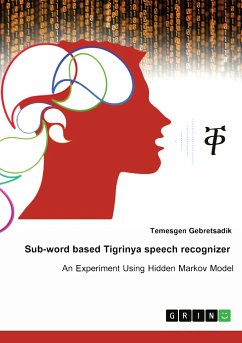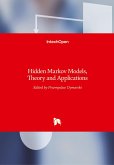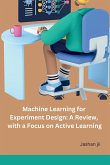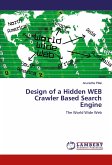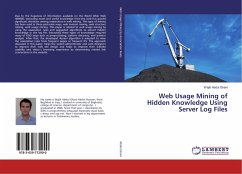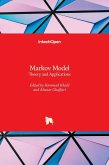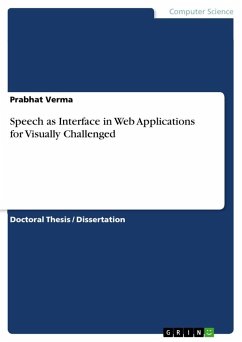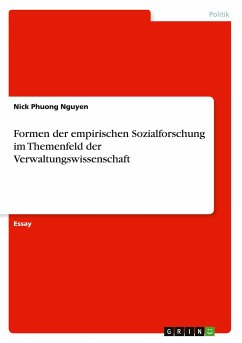Master's Thesis from the year 2013 in the subject Computer Science - Miscellaneous, grade: Very good, , course: Masters of Science in Computer Science, language: English, abstract: Speech recognition, a process of changing speech to text, has been one of a research area for the last many decades. Even though there are several techniques of modeling a speech recognizer, yet it is still challenging to find one that overcomes all the limitations. So this thesis examines the possibility of developing Tigrinya language speech recognizer by finding out which sub-word unit is most appropriate in developing efficient large vocabulary, speaker independent, and continuous Tigrinya speech recognition system using hidden Markov models (HMM). The recognizer was developed using Hidden Markov Model, and the Hidden Markov Modeling Toolkit was used to implement it. In the course of developing this system, the speech data is recorded at a sampling rate of 16 KHz and the recorded speech is converted into Mel Frequency Cepstral Coefficient (MFCC) vectors for further analysis and processing. In this research work, 1000 selected utterances were uttered by 26 selected peoples from different age group and sex constituting of 4643 unique words. Accordingly, the database is set up into two ways the first database comprised of 1000 utterances that are used for training and out of which 100 sentences were taken for testing and evaluation whereas the second database consists of 900 utterances for training and 100 utterances for test and evaluation which is different from the training set. Furthermore, the data is preprocessed in line with the requirements of the HTK toolkit and both the text and speech corpuses were prepared in consultation with the domain experts.
Hinweis: Dieser Artikel kann nur an eine deutsche Lieferadresse ausgeliefert werden.
Hinweis: Dieser Artikel kann nur an eine deutsche Lieferadresse ausgeliefert werden.

